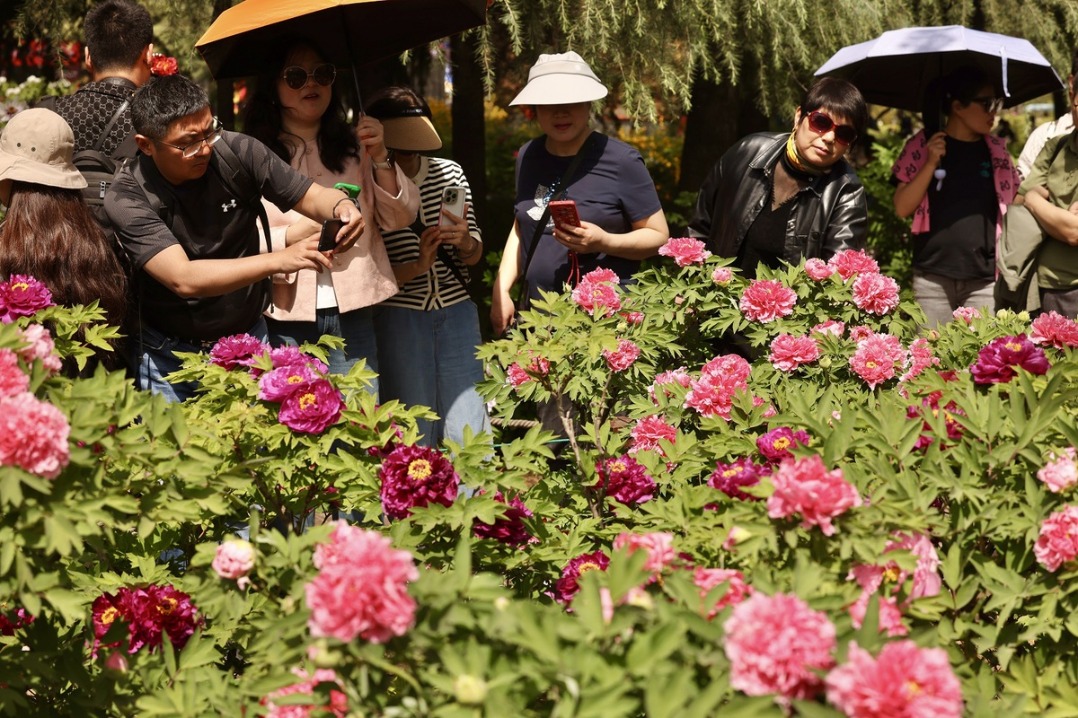Warning issued on traditional pickling


Cabbage preference
In September and October in Hangzhou, capital of Zhejiang province, pickled cabbage is made by families using methods similar to those in the northeast.
However, in Hangzhou, older cabbages are preferred and these are usually covered by bamboo shavings, before a stone is placed on top of the bamboo.
According to Liu Xin, 48, a chef from Yunnan who owns two restaurants in Beijing specializing in the province's cuisine, pickled food is used each day in Yunnan and different areas have pickles with contrasting flavors, from vegetables and fungus, to beans and fruit.
Pickled rose Chinese mustard, which has a complex aroma of soy sauce, sugar and roses, is a signature Yunnan pickle.
After winter sets in, fresh Chinese mustard is cleaned and cut, marinated in brine three times before being fermented with a special sauce made from sugar, rose sugar and fermented flour sauce.
Whether fried for use in dishes or added to snacks and staple foods, pickled rose Chinese mustard is a common ingredient in family kitchens in Yunnan.
"We only use the best-quality soy sauce to marinate the Chinese mustard," Liu said.
Pickled leek flower from Qujing city is another signature Yunnan pickle. The minced leek flower is marinated with kohlrabi-a type of cabbage with an edible stem-chili, red sugar, rice liquor and salt.
After fermenting for about six months, the acrid leek flower and the plain sliced kohlrabi turn into yellow and red pickle, which is tender and crunchy, sweet and salty.
"In Yunnan, two particular characteristics are the local herbs and spices used to marinate pickles," Liu said, adding that brown sugar and the local kaoliang spirit are "musts".
"In addition to bitter fruits, such as local pawpaw, others, including strawberries and pears, are made into pickles by locals," Liu said.
In Yunnan, fish and meat are also used to make some pickles.
For example, dried fish mixed with chili powder, Sichuan pepper and salt will turn into the delicious yuzha, or pickled fish, after being marinated for a month.
Liu said that when he was a child, each family in his neighborhood had its own signature pickles.
"My grandmother was good at making qiezizha, or eggplant pickle, and pickled chili, which can be fried with meat or steamed with fish," he said.
"If you discuss eggplant pickle with people from Yunnan, it will definitely make their mouths water."
Liu said most pickles in the province can be made at any time of year, and some ingredients, such as eggplant, start to be harvested in autumn.
"We have different ingredients to enjoy each season, such as flowers in spring, fungus in summer, fruits in autumn and vegetables in winter," Liu said.
"Unlike northern parts of the country, where pickled food is more about storage, in Yunnan, the pickle is used to bring more flavor to our cuisine, and its sour, spicy taste is a favorite."
Liu thinks that people in Yunnan are highly selective when they buy pickles from markets, and only choose the best-flavored ones.
"They won't shop for pickles at a store they are unfamiliar with, and pickle businesses only usually start to thrive after winning praise from locals," Liu said.























